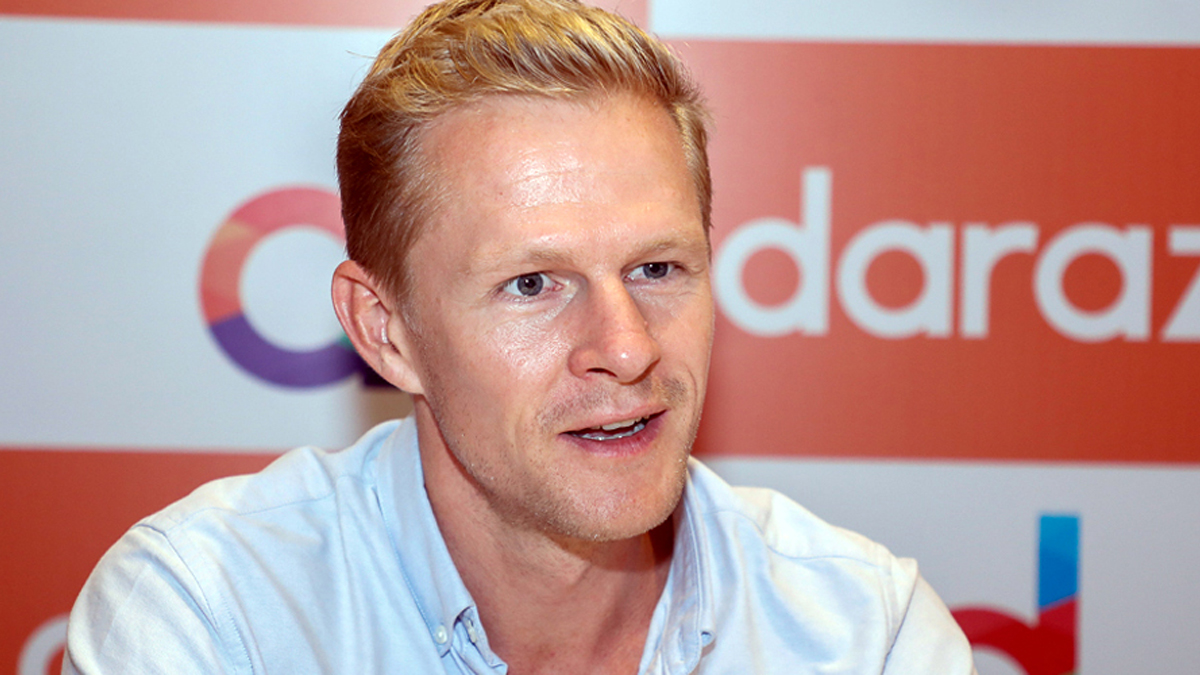
Pakistan’s $1.5 Billion E-Commerce Market
Does the creator and group CEO of Daraz, the leading participant in Pakistan’s $1.5 billion e-commerce market, believe that the nation is a challenging one to do business in?
“Absolutely” Bjarke Mikkelsen, CEO of the Alibaba-owned e-commerce platform with operations in Pakistan, Sri Lanka, Bangladesh, and Nepal, said.
Nation’s First Automated Smart Distribution Centres
During his one-day tour to inaugurate the nation’s first automated smart distribution centres in Karachi and Lahore, Mr. Mikkelsen spoke with various interviewers and stated that the largest obstacle to e-commerce in Pakistan is the lack of seller education.
The group CEO of the online marketplace, which boasts 20 million active monthly users and a 35 percent national ecommerce market share, thinks trust deficit issues are unique to developing nations.
“Trust is only damaged if the merchant brings a red t-shirt rather than a blue one. The client won’t make another purchase. We are only as good as our sellers,” he continued, adding that the trust gap is “much, much smaller” in established countries like the US and Europe.
Gauge of Consumer Satisfaction in E-Eommerce
According to him, the company has worked consistently to reduce the rate of quality-related returns, which is a gauge of consumer satisfaction in e-commerce, from 2 percent of all orders to 0.7 percent in recent years.
“We’re at an inflection moment now as the market’s confidence reflects the way things were perhaps three to four years ago.”
Read More | Workers Leaving Their Dream Jobs
Read More | How to Earn Money Online in Pakistan
Despite the staggering figures, Daraz has regularly lost money throughout the eight years that it has operated in Pakistan.
Growing the Ecosystem
“We’re still three to four years away from profitability. Growth has been the focus over the past many years. We have been growing the ecosystem while securing the market. It has been costly. In Pakistan, we’ve spent $100 million doing that over the previous three years,” he claimed.
Mr. Mikkelsen said Daraz believed in creating a sustainable business in response to the previous “blow-ups” of quick-commerce start-ups that promised food deliveries in 30 minutes after raising mind-boggling sums from venture capitalists.
According to Mr. Mikkelsen, the opening of the two automated smart distribution centers would significantly increase the company’s operational capacity.
Logistics Division of Alibaba Group
In collaboration with Cainiao Network, the logistics division of the Alibaba Group, the business established the “most technologically advanced logistics facilities in South Asia” for a total of $4 million, he claimed.
To guarantee operational quality and stability, these centres will include automatic assembly lines and use Cainiao’s own solutions, including e-programmable logic controllers. The buildings are over 50,000 square metres in size and can handle 428,400 orders each day.
“It will enable us to increase our sorting capacity by more than 4.2 times and decrease manual errors by more than 90%,” he claimed.



